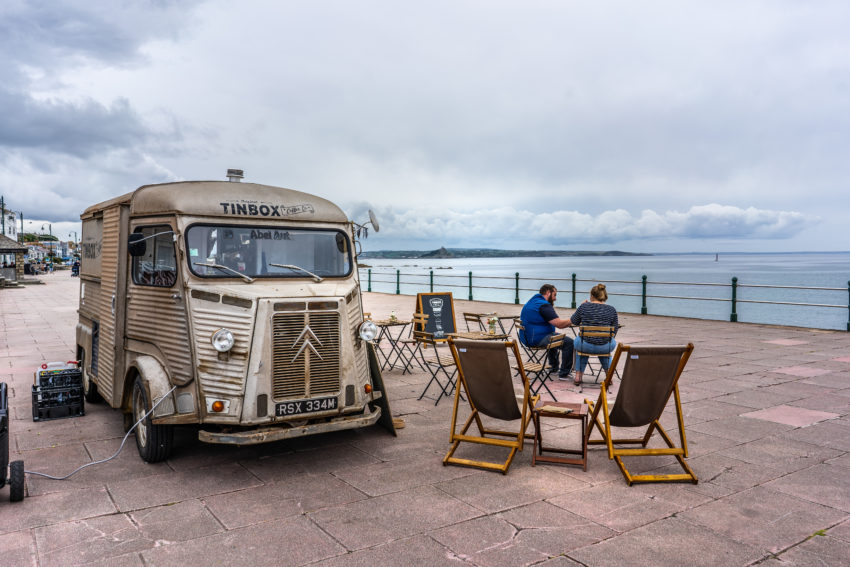For several years local government has faced funding cuts and increasing public demand for their services, these financial pressures have been further exacerbated by the pandemic. Local authorities reported £9.7 billion in Covid-19 cost pressures and income losses, at least 25 councils were on the verge nearly bankruptcy according to the National Audit Office.[1]

Cornwall Council
The cuts to funding over the last decade have forced local authorities to come up with more innovative ways to generate income. To generate income, Cornwall Council launched a series of trade concessions in 2016 across their assets known as ‘pop up sites’.[2]
Since the start of the programme, over 50 businesses have been supported by the council. In 2019 the scheme raised £110,000 for the council, it brought in over £90,000 during the pandemic in 2020.
What is a pop up site?
A pop up site is a mobile business permitted through the scheme to trade in some of Cornwall’s open spaces. The scheme aims to generate revenue for both the business and the council whilst encouraging more people to visit Cornwall’s assets. Locations for the sites are carefully chosen, with each location already having good footfall and being in an aesthetic area of Cornwall. This encourages people to embrace the outdoor spaces and to share the pop ups on social media because of the idyllic areas they are located in.
The scheme also provides opportunities for new and existing businesses to trade without being tied into long-term leases, with the stipulation that the business has to be mobile. The businesses trade from any location the council permits, between 06:00-22:00 and nothing is left behind at the site when business hours are finished. This is to ensure the open spaces are well maintained and looked after throughout the time the business is in the location.
How are businesses and locations chosen?
The pop up scheme is a cross-department project between open spaces, environment, car parks and maritime. These departments work together to compile a long list and then a shortlist of suitable locations. The shortlist is decided before pitches are assessed so it is possible to understand how well suited a business is to the site. Business tenders are assessed by 3 different officers at the council, with the tenders assessed on a 60% quality and 40% annual rent bid. The criteria are broken down into a points-based system:
- Experience (5 marks) – How many years of experience does the vendor have?
- Business set up (15 marks) – How does the business invest in its staff, and has supporting evidence been provided with the pitch?
- Sustainability (20 marks) – How does the business aim to be waste-free?
- Promotion and and protection of the environment (20 marks) – Does the business support a local group or provide outreach activities for the community
Assessing the businesses in this way, asking for risk assessments and documents before the tender agreement, leads to only serious pitch applications. These additional criteria have been established as the pop up scheme has grown and lessons have been learned from practice.
Lessons Learned and looking to the future
The key lesson learned from the pop up scheme has been to ask for all the money upfront for the lease when the tender is agreed. Initially, the council asked for 70% of the lease when the tender was agreed at the start of the tax year and the final 30% later. However, this led to delays in payment from the businesses. Expecting the complete payment for the lease upfront ensured only businesses serious about the pitch would apply.
Building on the success of the pop up scheme so far, Cornwall Council are looking to diversify the businesses taking part in the scheme. By offering longer tenders they are hoping to attract other business ventures to the sites, such as fitness classes that can be held on a more permanent basis. The longer tenders would also give more stability to the vendors and council, generating an income from longer-term pitches on what was previously uncommercialised land.
Key Takeaways
- Having pop ups gives councils an opportunity to generate an income from previously uncommercialised land
- Local businesses are supported through pop ups and the foot traffic scenic locations already enjoy
- Councils should ask for the costs of the tender up front to ensure businesses are serious in their applications
Register FREE to access 2 more articles
We hope you’ve enjoyed your first article on GE Insights. To access 2 more articles for free, register now to join the Government Events community.
(Use discount code CPWR50)




